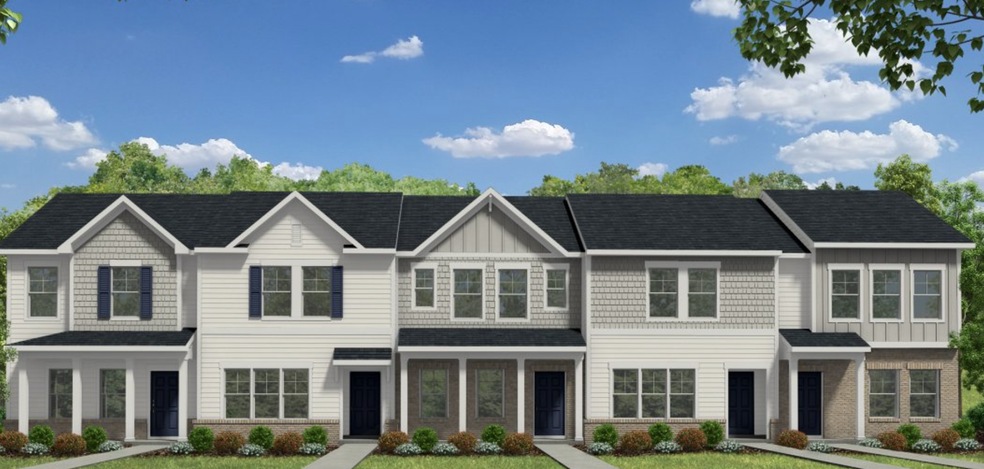A Virginia county seeking ways to make buying homes easier for people with limited incomes has tapped revenue from data centers, a property type proliferating across the country.
Two townhouse developments under construction in Henrico County, a suburb of the state capital of Richmond, are the first to be built with help from a $60 million affordable housing trust fund. All of the money in the fund is from real estate and personal property taxes paid by data center developers.
Data centers have seen significant growth in Virginia, especially in areas close to Washington, D.C., but also in Henrico County. While a recent report from the state points to problems with locating these large industrial facilities close to residential neighborhoods, data centers are also attractive to local governments because of the amount of tax revenue they generate. In Henrico, with a population of 334,000, officials decided last spring to direct the first wave of the new housing trust to homeownership opportunities for residents.
“They really wanted to focus on homeownership, as the gap was pretty significant between what it cost to buy a home in the county” and what people in many jobs earn, Jovan Burton, executive director of the Richmond-based nonprofit advocacy group Partnership for Housing Affordability, said in an interview. “When you’re thinking about retaining talent and residents, that’s going to be more and more difficult if that gap between wages and housing prices continues.”
The trust fund will provide cash grants and other financial incentives to developers that agree to reduce the prices of new single-family homes and townhouses to make them affordable to families with incomes between 60% and 120% of Henrico’s median, depending on the housing. A four-person household making 60% of the median income could earn up to $66,180 and qualify for the homes, while a similar household at 120% of the median could make $132,360.
Attractive to builders
The size of the county’s trust fund is striking, Burton said, comparing it to the $80 million the entire state of Virginia had in a similar fund in a recent year. Another way the trust fund is different is that all the money will be distributed in cash grants, rather than as loans. Burton said that makes it more enticing to potential developer partners.
Parkside Townes, one of the two developments underway set to benefit from the trust fund, includes 123 townhouses, of which 25 will be priced in the upper $200,000 range. That’s close to $100,000 less than they would have cost without Henrico’s support, said Jonathan Ridout, vice president of real estate development at HHHunt Communities, which is building the new homes in the eastern part of the county.
The company received roughly $2 million worth of incentives, Ridout said. The county picked up the cost of acquiring land for the townhouses and paying water, sewer and other fees. The land will be owned by Richmond’s Maggie Walker Community Land Trust, so homebuyers will only pay for the actual houses.
“We were trying to create a lower price point, but the county program helps us open it up to a whole lot more people,” Ridout said. “We’re definitely going to see if we can make it feasible in more of our projects.”
Burton’s organization will administer the $60 million program on the county’s behalf, taking applications from prospective buyers. The county and partnership set a goal to build 150 new homes each year for five years. After that, the trust fund may have more funding from data centers for the county to extend its housing assistance.

A house built with aid from the trust fund must be owner-occupied and deed restrictions will keep it affordable for at least 10 years, even if the first buyer sells, the county said in a statement.
Henrico’s data center revenue is likely to keep growing. The county currently has 16 of the facilities; in May it approved a new data center campus on 622 acres near the intersection of two interstate highways. Future data center revenue could go to other county needs besides housing.
“That’s going to double the county’s data center revenue; two years down the road the county could be looking at hundreds of millions of dollars in revenue they can allocate for different needs. We’re hopeful housing will remain one of those,” Burton said.
